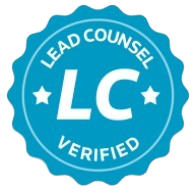Frequently Asked Questions
How much does estate planning cost in Texas?
The cost of estate planning in Texas varies based on individual needs and complexity, typically ranging from a few hundred to several thousand dollars, depending on the services required and the attorney's expertise.
How often should I update my estate planning documents in Texas?
Updating your estate planning documents in Texas is essential to ensure they reflect your current wishes and circumstances. It is recommended to review and update them every three to five years or after significant life events, such as marriage, divorce, or the birth of a child.
How can estate planning complement my asset protection efforts in Texas?
Estate planning can significantly enhance your asset protection efforts in Texas by establishing legal structures, such as trusts, that safeguard your assets from creditors and ensure they are distributed according to your wishes.
What is estate planning in Texas?
Estate planning in Texas involves the process of organizing and managing your assets to ensure they are distributed according to your wishes after your death, while also addressing tax implications and potential legal challenges.
How do estate planning and asset protection work together in Texas?
Estate planning and asset protection work together in Texas by creating a structured approach to safeguarding your assets while ensuring they are distributed according to your wishes. Effective estate planning incorporates tools like trusts to minimize risks and protect your wealth from creditors and unforeseen circumstances.
What factors influence estate planning costs in Texas?
The factors that influence estate planning costs in Texas include the complexity of the estate, the types of assets involved, the specific estate planning strategies utilized, and any additional legal services required for implementation.
When should I review my estate plan?
You should review your estate plan whenever there are significant life changes, such as marriage, divorce, the birth of a child, or changes in your financial situation, as well as every few years to ensure it reflects your current wishes and circumstances.
How can I minimize estate planning expenses?
Minimizing estate planning expenses involves proactive strategies such as utilizing online resources for basic documents, consulting with a qualified attorney to avoid costly mistakes, and consolidating assets to streamline the planning process.
What documents are essential for estate planning?
The essential documents for estate planning include a will, trust agreements, power of attorney, healthcare directives, and beneficiary designations. These documents ensure your wishes are honored and your assets are managed according to your preferences.
How does estate planning protect my assets?
Estate planning protects your assets by establishing legal frameworks, such as trusts and wills, that dictate how your assets are managed and distributed. This ensures your wishes are honored, minimizes taxes, and safeguards your estate from potential disputes or creditors.
What are common mistakes in estate planning?
Common mistakes in estate planning include failing to update documents regularly, not considering tax implications, neglecting to communicate plans with family, and overlooking the importance of choosing appropriate beneficiaries for trusts and wills.
How can trusts enhance estate planning in Texas?
Trusts enhance estate planning in Texas by providing a structured approach to asset management, ensuring privacy, minimizing probate costs, and offering greater control over the distribution of assets according to your wishes, ultimately securing your legacy.
What is the role of a trustee in estate planning?
The role of a trustee in estate planning is to manage and administer the trust according to its terms, ensuring that the assets are distributed to beneficiaries as intended while upholding legal and fiduciary responsibilities.
How can I ensure my estate plan is valid?
Ensuring your estate plan is valid involves creating legally sound documents, having them properly witnessed and notarized, and regularly reviewing and updating them to reflect any changes in your circumstances or laws.
What are the tax implications of estate planning?
The tax implications of estate planning include potential estate taxes, gift taxes, and income taxes on trusts. Proper planning can minimize these taxes, ensuring more assets are preserved for heirs and beneficiaries.
How does probate affect estate planning in Texas?
Probate significantly impacts estate planning in Texas by determining how assets are distributed after death. Effective estate planning can minimize probate complications, ensuring a smoother transition of assets and potentially reducing costs and delays for beneficiaries.
What is the difference between wills and trusts?
The difference between wills and trusts lies in their function and timing. A will outlines how assets are distributed after death, while a trust manages assets during a person's lifetime and can provide benefits to beneficiaries before and after death.
How can I include charitable giving in my estate plan?
Including charitable giving in your estate plan can be achieved by designating specific assets or a percentage of your estate to charitable organizations, establishing a charitable trust, or creating a donor-advised fund to support your chosen causes.
What happens if I die without an estate plan?
Dying without an estate plan means your assets will be distributed according to Texas intestacy laws, which may not align with your wishes, potentially leading to disputes among heirs and delays in asset distribution.
How can I choose the right estate planning attorney?
Choosing the right estate planning attorney involves evaluating their experience, expertise in trust-related matters, and client reviews. Ensure they understand your specific needs and offer personalized strategies for effective estate management.
What are the benefits of updating my estate plan?
The benefits of updating your estate plan include ensuring that your assets are distributed according to your current wishes, adapting to changes in laws or family dynamics, and enhancing the protection of your beneficiaries' interests.
How can estate planning address family dynamics?
Estate planning can effectively address family dynamics by facilitating open communication, clarifying roles, and reducing potential conflicts among family members. By establishing clear guidelines and structures, it helps ensure that everyone's interests are considered and respected.
What is the process for creating a living trust?
The process for creating a living trust involves several key steps: first, you define your assets and beneficiaries, then choose a trustee to manage the trust, and finally, draft the trust document with legal assistance to ensure it meets Texas laws.
How can I protect my childrens inheritance?
Protecting your children's inheritance involves establishing a trust that specifies how and when assets will be distributed, ensuring their financial security and managing potential risks. Consulting with an estate planning attorney can help create a tailored strategy for your family's needs.
What are the benefits of joint ownership in estate planning?
The benefits of joint ownership in estate planning include simplified asset transfer upon death, potential avoidance of probate, and shared management of assets, which can enhance financial security and ease decision-making for co-owners.
How can I plan for incapacity in my estate plan?
Planning for incapacity in your estate plan involves designating a trusted agent through a durable power of attorney and establishing a healthcare proxy. These legal tools ensure your wishes are honored and your affairs are managed effectively if you become unable to do so.
What is the significance of beneficiary designations?
The significance of beneficiary designations lies in their ability to determine who will receive your assets upon your passing, ensuring a smooth transfer of wealth and minimizing potential disputes among heirs.
How can I ensure my wishes are honored after death?
Ensuring your wishes are honored after death involves creating a legally binding estate plan, such as a will or trust, and clearly outlining your desires for asset distribution and care decisions. Consulting with an estate planning attorney can help ensure your intentions are effectively documented and executed.
What are the advantages of pre-planning my estate?
The advantages of pre-planning your estate include ensuring your assets are distributed according to your wishes, minimizing taxes and legal fees, and reducing the burden on your loved ones during a difficult time.
How can I incorporate digital assets into my estate plan?
Incorporating digital assets into your estate plan involves identifying your digital holdings, such as online accounts, cryptocurrencies, and digital files, and specifying how they should be managed or transferred upon your passing in your estate planning documents.

















